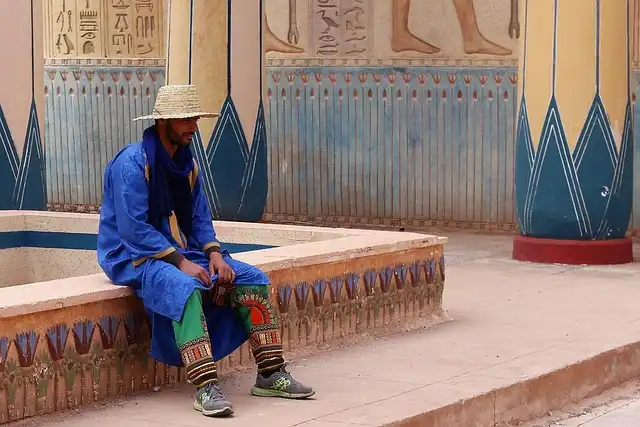Angelo Codevilla: Renaissance Man, Strategist & Critic

Remembering Angelo Codevilla: a Renaissance man, strategic thinker, and critic of the national security establishment. His work influenced the Tea Party and foreshadowed Trump's rise.
Angelo Codevilla was a Renaissance man in more ways than one– a brilliant plan designer and pungent critic of the national protection establishment (consisting of in the CIA) that was also a long time Boston University teacher and a translator of the most hazardous and daring thinker of the Renaissance itself, Niccolo Machiavelli.
Codevilla’s Life and Influences
He made a bachelor’s level from Rutgers University, a master’s from Notre Dame and a doctorate from Claremont Grad College– currently called Claremont Graduate College– where he researched with the political philosophers Leo Strauss and Harry V. Jaffa.
Calling for a more populist type of conventional to handle a gentility that was no more loyal to the nation’s citizens, Codevilla’s essay galvanized the Tea ceremony motion because year’s midterm political elections and looked ahead to the rise of a leader like Trump.
Completion of the Cold Battle really did not imply the end of the nuclear threat, nonetheless: far from it, with Russia and China still having countless warheads aimed at us, while various other undependable or straight-out aggressive countries like Pakistan and North Korea joined the nuclear club, and Iran progressed towards getting the bomb, too.
Nuclear Threat and Missile Defense
In his contribution to “Battling Adversaries Foreign and Residential,” Thomas Codevilla connects his papa’s story of migration and Americanization: “Picture, if you will, being birthed inadequate in World Battle II Italy with a predeceased dad. If you’re Angelo Codevilla, as his son recounts, “You discover English from John Wayne motion pictures and best your accent by repeating Winston cigarette ads.” He was a master of the initial America First brand of foreign policy,” Brian Kennedy creates.
Ryan Williams, president of the Claremont Institute, has done something greater than justice to Angelo Codevilla’s life and legacy by putting together and editing “Combating Adversaries International and Domestic,” with payments from scholars and policy minds such as David P. Goldman, Steven F. Hayward, Robert Reilly, J. Michael Waller and David Cobrin, along with Kennedy and Thomas Codevilla.
What little defense we have is just planned “to stop a limited variety of North Korean missiles targeted at the western USA. It can not quit Chinese or russian nuclear ballistic missiles. Nor can it stop a ship-launched ballistic rocket from stated nations or from Iran neither the myriad sophisticated missiles, drones, and hypersonic-reentry cars such countries can create.”
Take projectile protection: Codevilla was a champ of Ronald Reagan’s Strategic Defense Campaign in the 1980s, the effort to create space-based systems that can secure opponent global ballistic projectiles before they can cause a nuclear holocaust on America.
Early Warnings and Policy Stances
He cautioned that the George W. Bush administration was making a significant error in the very early 2000s by attempting nation-building and democracy promo in the Islamic world rather than cutting off extremism at its resource, which for Codevilla suggested Saudi assistance for Wahhabism.
He educated at Georgetown University, after that left DC in 1985 to commit himself permanent to mentor and scholarship, initially as a Hoover Establishment study fellow and then, from 1995 to 2008, as a Boston University professor of worldwide relationships, writing a multitude of books along the road, including “The Character of Nations” and “Guidance to War Presidents.”
His version of Machiavelli’s “The Royal prince,” in Princeton College Press’ Rethinking the Western Practice Series, is unparalleled for its combination of readability and accuracy– it stands alongside the timeless translation by Harvard College’s Harvey Mansfield and the recent version by Seton Hall’s William J. Connell as the very best performance of this brief but infamously subtle work. As a native speaker of Italian, Codevilla brought an one-of-a-kind charisma to the job of Englishing the Florentine mastermind.
Kennedy, American Approach Team head of state, indicate Codevilla’s 1988 publication “While Others Build: The Commonsense Strategy to the Strategic Protection Effort” and his posthumous 2022 quantity “America’s Rise and Fall among Countries: Lessons in Statecraft from John Quincy Adams” as the cure for our political class’s reckless complacency.
If you’re Angelo Codevilla, as his boy recounts, “You learn English from John Wayne movies and excellent your accent by repeating Winston cigarette advertisements. You deliver newspapers to mobsters; you learn to knife fight to protect on your own at institution; you construct amateur rockets and happily shoot them over the Hudson River into New York.
He wasn’t simply a diplomacy specialist, however– Angelo Codevilla likewise wrote what could be considered the policy of the MAGA movement a full 6 years prior to Donald Trump was very first elected president.
Donald Trump survived an assassin’s bullet and returned to the White House. Nor can it quit a ship-launched ballistic projectile from stated nations or from Iran neither the myriad innovative rockets, drones, and hypersonic-reentry automobiles such countries can produce.”
“America’s Ruling Class– And the Perils of Change,” very first showing up in the American Spectator in 2010 and later on increased into a brief publication, was an essay so vital that Thrill Limbaugh reviewed it out loud, in full– 12,000 words– on his radio program.
Donald Trump made it through an assassin’s bullet and returned to the White House. And an additional assassin claimed the life of Charlie Kirk.
America First and Immigration
“He was a master of the original America First brand of diplomacy,” Brian Kennedy creates. “It asked the straightforward concern: ‘What is good for America and the American individuals?’ There was no additional consideration.”
Therefore, writes Brian Kennedy, one of the contributors to this volume: “Regardless of the very best initiatives of Codevilla and President Reagan, the United States does not today have a reliable nationwide missile-defense system.”
In his contribution to “Combating Enemies Domestic and international,” Thomas Codevilla connects his papa’s tale of migration and Americanization: “Think of, if you will, being born inadequate in Globe War II Italy with a predeceased father. You are initially in your course every year because you have to be. After making it to America on a ship in 1955, “Every August 8 for the remainder of your life, you commemorate the anniversary of your disembarkation.”
He may have been birthed in Voghera, Italy, in 1943, yet Angelo Codevilla became all-American– an immigrant constantly grateful not only for the chances this nation gave him but for the virtues of its man in the streets and the rightness of its founding principles.
Angelo himself would recall, “It was my privilege to stand on the port rail of the American Export Lines SS Constitution, along with every various other emigrant on board, as the ship slipped past the Statuary and into NY harbor, Pier 40. Nobody made a sound. … No one really knew what awaited us.
It appears “our missile-defense systems are created primarily to offer the impression to an or else uninformed public that we are protected,” and this “was the most awful of all worlds for Codevilla. Not just was the United States not protected, however challengers of rocket protection might claim as a matter of fact that existed.”
1 America First2 Angelo Codevilla
3 Machiavelli
4 missile defense
5 national security
6 Tea Party
« Book Reviews: Muncaster, Burke, Banville & MaxwellJane Birkin: Bohemian Life, Loves, and the Birkin Bag »
